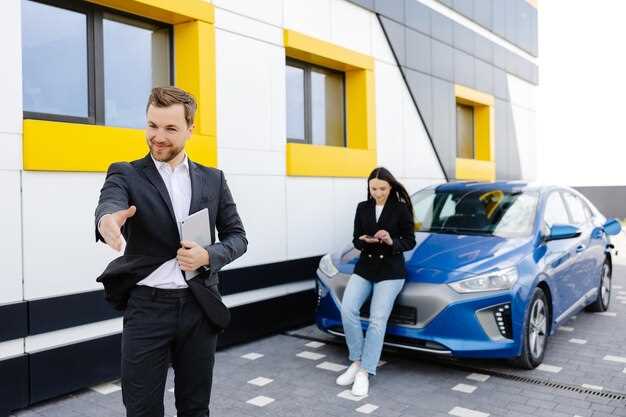
When it comes to acquiring a vehicle or equipment, the decision between leasing and buying can be a pivotal moment in your financial planning. Each option carries its own set of advantages and drawbacks, making it essential to carefully evaluate what aligns with your personal or business goals. The fundamental difference lies in the concept of ownership: while buying grants you full control and eventual ownership of the asset, leasing typically provides lower monthly payments and flexibility.
Understanding the implications of ownership is crucial in making an informed choice. Purchasing an asset means committing to its long-term value, which can be a significant financial investment. Conversely, leasing allows for access to newer models with minimal upfront costs, appealing to those who prioritize flexibility and the latest technology. However, this comes at the expense of permanent ownership.
In this article, we will delve into the nuances of each option, considering various factors such as financial implications, lifestyle preferences, and business needs. By the end, you will have a clearer understanding to help determine whether leasing or buying is the best fit for your unique situation.
Leasing or Buying: Which Option Suits You Best

When considering whether to lease or buy a vehicle or equipment, several factors come into play that can help you make the best choice for your situation. Leasing involves obtaining the use of an asset for a specified period while making regular payments, without owning the asset outright. In contrast, buying means you pay the full price upfront or finance the purchase, ultimately gaining ownership.
Leasing is often favored for its lower upfront costs. Monthly payments are typically lower than financing a purchase, allowing you to access newer models of vehicles or equipment without a significant financial commitment. This option also includes maintenance packages in many cases, providing peace of mind regarding repairs and upkeep.
On the other hand, buying is beneficial if you plan to use the asset for a long time. Once purchased, there are no further financial obligations, and you can customize your vehicle or equipment as needed. Over time, ownership may prove more cost-effective, especially if the asset retains its value well.
Additionally, your financial situation and usage requirements play critical roles in this decision. If you frequently change vehicles or equipment, leasing could be a more flexible choice that accommodates your preferences. Conversely, those who require extended use of an asset may find buying more suitable, even if it involves higher initial costs.
In conclusion, whether leasing or buying is the right choice hinges on your financial goals, how long you intend to use the asset, and your personal preferences. Evaluating these aspects can lead to a more informed decision that aligns with your needs.
Evaluating the Financial Impact of Ownership vs. Leasing
When considering whether to buy or lease an asset, it is crucial to assess the financial implications of each option. Ownership typically involves a large upfront investment, which can strain cash flow, while leasing often requires lower initial payments and can preserve capital for other business needs.
Ownership generally leads to asset appreciation over time, potentially resulting in resale value. However, it also carries responsibilities for maintenance, taxes, and insurance. Depreciation can impact the worth of the asset, affecting long-term financial outcomes.
In contrast, leasing allows for flexibility and lower monthly payments, benefiting businesses that prefer allocating funds to operational expenses rather than capital expenditures. Leases may also include maintenance and service agreements, reducing the burden of upkeep. Furthermore, leasing can provide access to newer technology without the financial commitment of full ownership.
It is essential to evaluate the total cost of ownership compared to the total cost of leasing over the intended usage period. Calculating factors such as tax implications, interest rates, and potential asset disposal value will provide a clearer financial picture. Businesses should also consider their long-term plans and whether the asset’s utility aligns with leasing terms.
Ultimately, the decision to lease or buy should be founded on a thorough analysis of both immediate financial impact and long-term strategic objectives. By carefully weighing the costs and benefits of each approach, one can determine the option that best supports financial health and operational goals.
Understanding Maintenance Responsibilities in Leasing and Buying

When considering whether to lease or buy a vehicle or property, understanding maintenance responsibilities is crucial. These responsibilities can significantly impact your overall ownership experience and financial investment.
- Maintenance Responsibilities in Leasing:
- Typically, lessors (the leasing company) are responsible for major repairs and maintenance during the lease term, ensuring that the asset is in good working condition.
- Leasing agreements usually include terms that cover routine maintenance, which can reduce the burden on the lessee.
- Lessee must adhere to scheduled service intervals specified by the manufacturer to avoid penalties and ensure warranty coverage.
- Any damages or excessive wear beyond normal use can lead to additional charges at the end of the lease.
- Maintenance Responsibilities in Buying:
- Owners are fully responsible for all aspects of maintenance and repairs once the purchase is made.
- This includes regular maintenance tasks such as oil changes, tire rotations, and addressing any mechanical issues that arise over time.
- While longer warranties are available, owners must budget for potential repair costs once these warranties expire.
- Ownership allows for flexibility in choosing how and when to maintain the asset, but it also requires a proactive approach to prevent larger problems.
In summary, leasing generally offers less maintenance responsibility compared to buying. However, ownership brings the benefit of complete control over the asset, which can be appealing for those willing to manage their maintenance obligations effectively. Weighing these responsibilities will assist in making an informed decision aligned with your lifestyle and financial situation.
Assessing Long-Term Value and Depreciation Considerations
When deciding between leasing and buying, understanding the long-term value and depreciation is essential. Ownership plays a crucial role in how these factors impact your financial commitments over time.
Ownership implies that after the purchase is complete, the asset is yours, allowing you to benefit from its long-term value. Over time, owned assets typically appreciate or stabilize, depending on the market conditions. This appreciation can provide a return on investment when selling the asset in the future. In contrast, leased items usually provide no residual value at the end of the lease term, which can be a significant consideration if you plan to keep the asset for an extended period.
Depreciation is another key aspect to evaluate. Owned assets depreciate, affecting their value over time. However, depreciation can also translate into tax deductions, benefiting your financial situation. On the other hand, leased assets may offer lower initial payments, but the costs can add up without any ownership benefits. As the leased equipment ages, its value diminishes, and you may find yourself repeatedly paying for what could have been a long-term investment.
Understanding the depreciation schedule of an asset can help in determining whether buying or leasing is more advantageous. If an asset has a slow depreciation rate, it may make more sense to purchase and hold it, leveraging its ownership advantages. Conversely, for rapidly depreciating assets, leasing might be the better route, minimizing costs associated with significant value declines.
In conclusion, assessing long-term value and depreciation considerations is vital in making an informed decision between leasing and buying. Ownership provides potential appreciation and tax advantages, while leasing offers flexibility with its inherent lack of long-term commitment. Evaluating these factors in the context of your specific situation will lead to the best financial choice.



